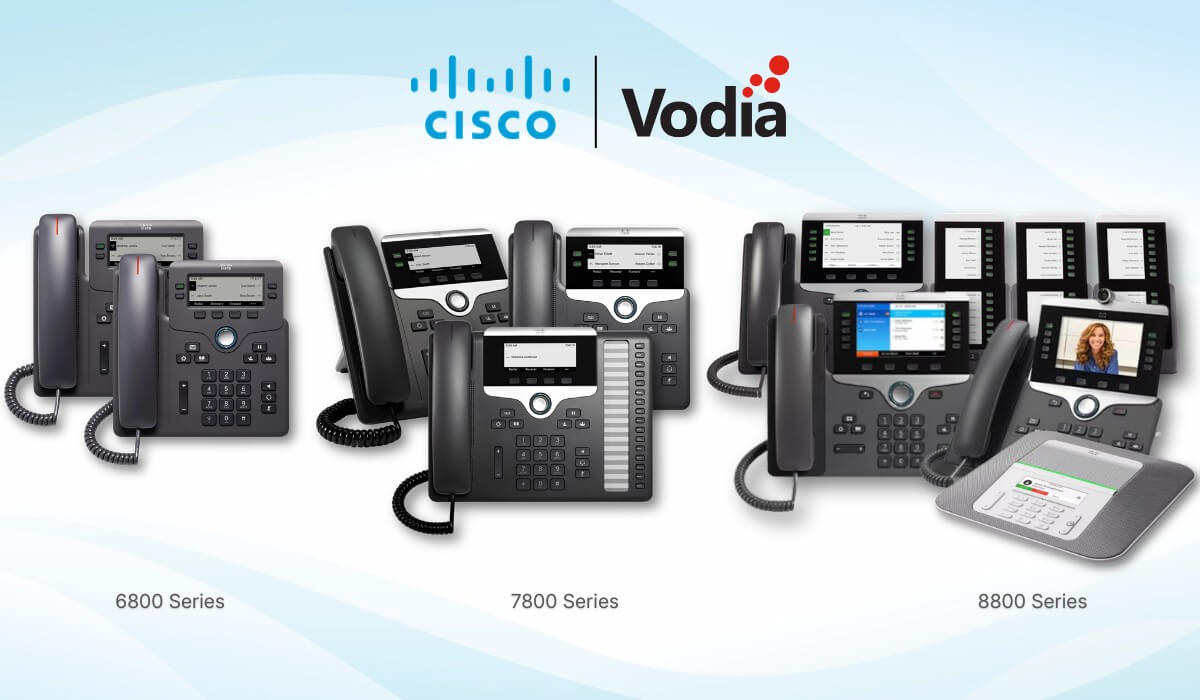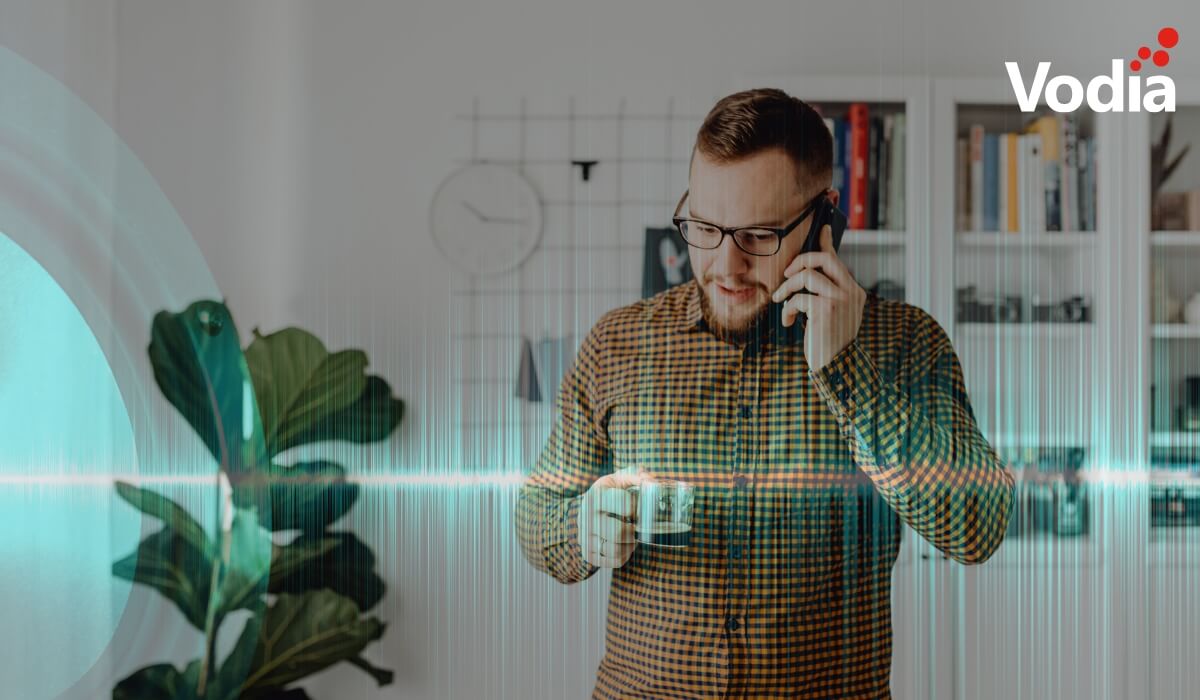White-labeling is a way manufacturers support well-known brands, simplifying both market access and customer recognition. It is used in many industries, including the telecom industry. While it’s easy to brand web pages and emails (including the Vodia PBX frontend and backend), white-labeling hardware and apps is a different topic.
When white-labeling desktop phones, there are several ways to brand these devices. The easiest way is to just load a different background image, which the Vodia PBX provides wherever possible. Another easy way to white-label desktop phones is to offer small plastic pieces that can be inserted into certain slots. This is available from some VoIP phone manufacturers, but it is quite cumbersome to print the plastic inserts. You can also print a logo on the phone itself, a white-labeling effect that even large operators accept. VoIP manufacturers usually provide this service when ordering devices in an amount between 1000 and 5000 units. The ultimate in white-labeling, the “holy grail”, is when the back of the device is also white-labeled, including all certifications and legal consequences. The cost for this can easily climb to seven digits, even before the first device has been purchased.
White-labeling apps looks a lot easier, but the app stores have become well-armed gatekeepers for mobile devices and, increasingly, PCs and Macs. Of course Apple, Google and Microsoft aren’t doing this for no reason: they’ve had a lot of experience with publishers releasing apps with all sorts of intentions. Some of these intentions were of course nefarious, and it wasn’t too long ago where it was considered legitimate to run a device for mining bitcoins in the background of an app, at least by certain publishers. The business model was essentially the user paid with their energy bill (which makes missed payments quite rare).
While this might sound outrageous present-day, it’s actually not too distant, as a business model, from a still popular way to monetize the app by data harvesting. The idea is the user doesn’t pay cash for the app but “pays” instead with provisioning data; this data is usually sold to advertisers that can better target these users. Apple recently changed its policy, and now the user has to approve this. There are other models, such as the click-bait model, where “large” users are drawn into the app just to “beat each other up” and spend a lot of time there, and eventually click on a link which in turn generates revenue for the app provider, though the amount is rather small.
The problems for app stores don’t end here. There have been numerous apps that look like banking applications, and their “data harvesting” had outright criminal intent. This is why all app stores have strict rules against impersonating, and app reviewers are busy figuring out which app is the original and which one is the copycat. We had to learn this ourselves at Vodia, when an app we had provided to one of our partners was approved, and our own submission of this same app was rejected because of the copycat policy.
Apple seems to be a bit stricter with copycats than Google, at least for now. Recently a lawsuit was filed against Apple because the company rejected an app thought to be a copycat, but other apps were not rejected. You can read more about this here, and if you are interested in the Apple guidelines you can read them here. The bottom line here is the app store has become another battleground for developers and lawyers, and we want to stay out of this as much as possible.
So this is where we are today. A lot of people are asking us what it takes for us to publish another version of the app — we hope this blog post explains what it requires. Comparing apps to VoIP phones is not completely unrealistic; as with the label on the back of the phone, in the app store the publisher is legally responsible for the app. Just publishing a slightly revised version of the app doesn’t cut it: it requires substantial work to come up with a new app and maintain it with every update of our PBX.
This is why Vodia is focused on providing more ways to white-label our app from the inside. As with desktop phones, you also load the tenant’s logo into the app. Other ways to customize the app include different backgrounds and colors. As we continue developing the app, we are figuring out how to give our partners even more options for app customization. We’d of course love to tell you all about it, sales@vodia.com, +1 (617) 861-3490.
.svg)





